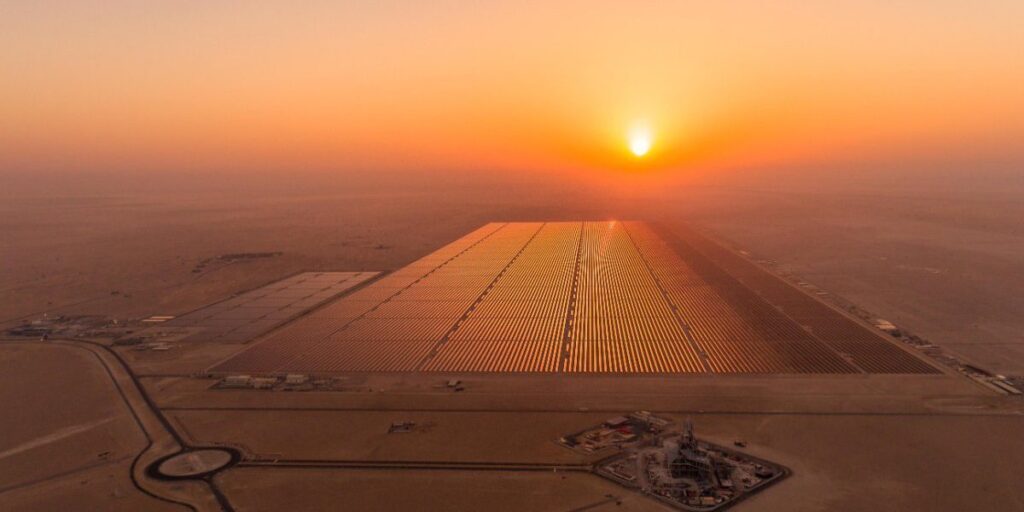KarmSolar is an Egypt-based cleantech specializing in solar power solutions. The new project targets the agricultural sector.
Egypt-based cleantech KarmSolar has received USD 3 million in debt financing from HSBC to finance the further development of its Farafra Solar Grid. This will mark the company’s second Grid deployment, following the earlier completion of the Marsa Alam Solar Grid.
KarmSolar, Juhayna and Nawa for Agricultural Investment
The project’s clients for Phase 1 are Juhayna and Nawa for Agricultural Investment, and the deployment leaves room for future expansion to other operational clients. The project focuses on the agricultural sector in Egypt’s Farafra region. The country’s agricultural sector makes use of inefficient, decentralized diesel generator setups. The new Grid will allow energy costs to be reduced significantly, as well as removing the burden of infrastructure, maintenance, and management operations from the farmers by providing cheaper kilowatt hours and competitive prices, allowing for more efficient optimization, in return driving down carbon footprint and CO2 offset.
KarmSolar was founded in 2011 by Ahmed Zahran, Xavier Auclair, Yumna Madi and Randa Fahmy.
Phase 1
Phase 1 of the Farafra Solar Grid comprises a 3.4 MWp solar PV station, 3.7 MVA diesel generators, and a 4 MWh/1MW solar battery storage system, established under KarmSolar’s SPV, Mars for Selling and Distributing Electricity. The project will allow for around 60% solar penetration aiming to reach 100% in three years’ time, thereby offsetting a total of around 5,200 tons of CO2 emissions per year.
The Farafra Solar Grid aims to be fully operational by Q3 2023 and is a first-of-its-kind microgrid solution that uses solar PV panels, battery storage system, and diesel generators in a centralized setup, operating under a usufruct agreement, then distributes the generated electricity to the different off-takers.
“The kickoff of the Farafra Solar Grid enables us to achieve our vision of extending affordable, reliable solar energy to relatively inaccessible parts of the country. It is very refreshing to see institutions like HSBC willing to focus their efforts and trust towards investing in nonconventional projects like the Farafra Solar Grid,” KarmSolar’s Co-founder and CEO Ahmed Zahran said.
Financed by HSBC
The solar grid project has received EGP 83 million in debt financing from HSBC for phase 1 with the support of Ezdaher Financial Consultancy. “HSBC is committed to supporting and financing the transition to secure a net zero future by helping our clients access sustainable and innovative finance solutions across all business sectors so they can make the investments needed to achieve their net zero goals,” Yasmin Farid, Head of Small and Medium Enterprises and Business Banking, HSBC Bank Egypt, said.
“Through our partnership with Kamsolar, we are delighted to have successfully implemented a unique project that provides solar power to Alfarfra Farm. This project not only promotes sustainability but also provides a reliable source of energy that will enable us to become more efficient and effective in our operations. We are proud to be setting an example of sustainability for other businesses to emulate, as well as creating a positive impact on the communities we serve.” said Ali Al-Shareef, Group Chief Executive Officer of Sisban For Agricultural Investment, Nawa’s mother company.
In October, KarmSolar received USD 2.42 million in funding from QNB ALAHLI to enhance a Power Purchase Agreement battery storage system for Cairo 3A, the first of its kind in Egypt.
